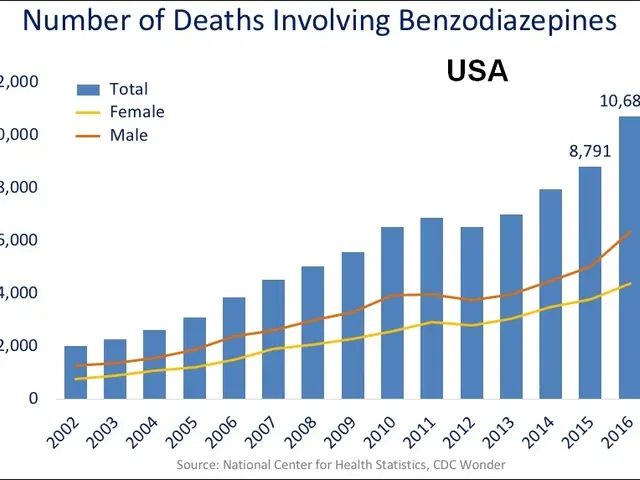Strategies for Emphasizing Mental Wellness During Mental Health Awareness Month
Mental Health Awareness Month may be drawing to a close, but the importance of mental health care and well-being remains a year-round priority. Dr. Donald Tavakoli, National Medical Director for Behavioral Health at UnitedHealthcare, offers several effective ways to prioritize mental health throughout the year.
Maintaining Consistent Self-Care Habits
According to Dr. Tavakoli, maintaining consistent self-care habits, such as regular exercise and balanced nutrition, can support overall mental well-being. Regular physical activity is known to lower stress levels, while proper diet can help regulate mood and reduce symptoms of anxiety and depression.
Engaging in Brain Health Activities
Engaging in brain health activities like learning new skills, solving puzzles, or playing certain video games can boost memory and protect against cognitive decline. These activities can help keep the mind active and sharp, contributing to overall mental health.
Addressing Youth Mental Health Proactively
During challenging times, such as school breaks, it's essential to offer support and open communication to children and adolescents. Proactively addressing youth mental health can help build resilience and coping skills that last a lifetime.
Recognizing the Impact of Social Media on Mental Health
Excessive social media use is linked to a higher risk of depression and anxiety, especially among young people. It's crucial to recognize the impact of social media on mental health and seek ways to mitigate its negative effects, with support from employers or community resources if needed.
The Role of Social Support
Strong social connections are linked to lower levels of anxiety and depression. Whether it's seeking support from a healthcare professional, a trusted friend, or a supportive community, social support plays a critical role in mental well-being.
Accessing Mental Health Support Through Health Plans
Individuals can access mental health support through a variety of methods offered by health plans. These may include in-person and virtual visits, coaching services, and digital self-care tools like Calm Health, provided by insurers like UnitedHealthcare. To access these resources, sign in to your health plan or call the number on your insurance ID card.
The Importance of Establishing a Relationship with a PCP
If you don't have a PCP, it's important to establish a relationship with one for mental health support and care. Your PCP can provide valuable insights and make referrals if needed for mental health care.
Mental Health Resources for All
One in five U.S. adults experiences mental illness each year. For more mental health resources, visit the UnitedHealthcare (UHC) website. These support lines offer "in-the-moment" assistance for mental health emergencies.
Taking care of mental health is not just about awareness campaigns in a specific month, but an ongoing commitment to overall well-being. By following these recommendations and taking advantage of the mental health resources available, individuals can prioritize their mental health and well-being year-round.
- To prioritize mental health throughout the year, engaging in self-care habits such as regular exercise and balanced nutrition, and brain health activities like learning new skills or playing certain video games can help support overall mental well-being and protect against cognitive decline.
- It's crucial to recognize the impact of social media on mental health, especially among young people, and seek ways to mitigate its negative effects, taking advantage of resources provided by health plans for mental health support.




